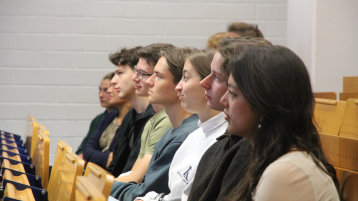Renewable Energy Management (Master's program)

The need for a sustainable energy supply is becoming more important with declining fossil energy resources, environmental pollution and climate change. The Renewable Energy Management (REM) Master's program contributes to the management of renewable energies worldwide through its holistic concept. The focus is on the promotion of renewable energy sources in Africa, Asia and Latin America.
Career Prospects
- Excellent career opportunities in international project and development cooperation
- Working for national and international companies in the expanding business sector of renewable energy
- Leadership positions in the public and private sector
- Become part of a network of excellence on renewable energy management
At a Glance
| Category | Description |
|---|---|
| Program | Renewable Energy Management |
| Degree | Master of Science (M.Sc.) |
| Type of program | Full-time program |
| Beginning of program | Winter semester |
| Program duration | 4 semesters |
| Language of instruction | English |
| Campus | Deutz Campus |
| Restricted admission | No |
First Semester Information
For all those starting a Master's Program at the Faculty of Spatial Development & Infrastructure Systems, we look forward to welcoming you! Find more information for your semester start here:
Information for Students
Curriculum, module handbook etc. Students enrolled at the Faculty of Spatial Development & Infrastructure Systems can find important information and further links here:
Profile
The Master's program is application-oriented. The aim is, apart from providing the participants with an overview of the energy sector in general, to educate experts in the field of renewable energy management. This requires a diversification of their knowledge and leads to the capability of cross-linked thinking. The answer to complex environmental and energy related problems requires economic and managerial competencies more than classical technical knowledge.
The consolidation of different disciplines has not only a methodological dimension but also a cultural and a human one, since interdisciplinary team work requires capacities of sharing knowledge and effective communication.
Therefore, the study objectives are focused on
- Understanding the global energy supply systems and their interrelationship with the environmental problems
- Evaluating the renewable energy resource potential for different resources and sites
- analyzing the current technologies used for these resources conversion to useful energy
- Analyzing the economics of these conversion methods at micro- and macro-economic levels
- Evaluating the environmental impact of current and future renewable energy systems
- Planning and managing of renewable energy projects


